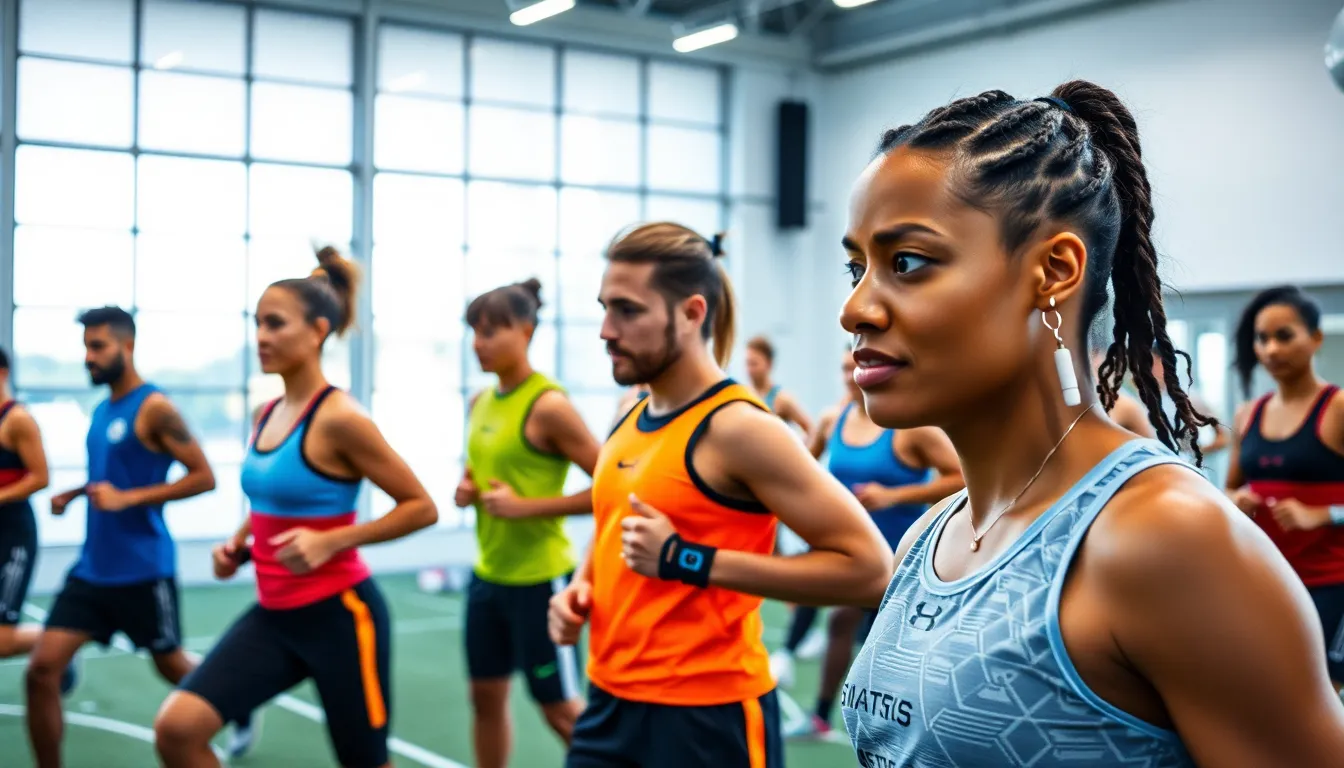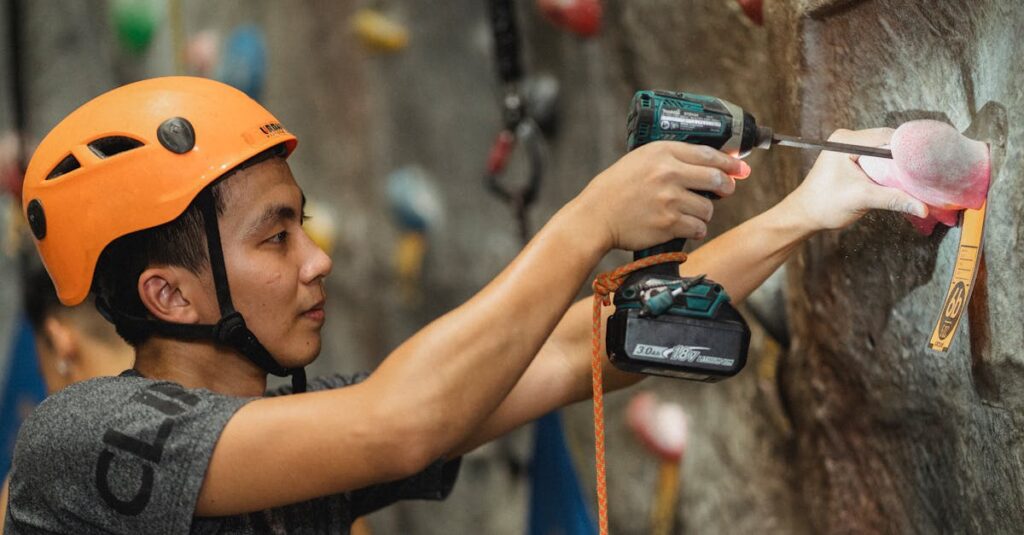In the fast-paced world of sports, where every second counts and every move matters, sport science is the unsung hero behind the scenes. Imagine a gathering where the brightest minds in this field come together to share groundbreaking research, innovative techniques, and maybe even a few secret training hacks. That’s exactly what a sport science conference offers—a thrilling blend of knowledge, networking, and the occasional awkward moment when someone tries to demonstrate a new exercise and ends up in a heap on the floor.
Sport Science Conference
Sport science conferences serve as pivotal platforms that foster collaboration among experts in the field. Researchers, coaches, and athletes gather to explore advancements in sport science, including biomechanics, physiology, and nutrition. Presentations often include findings from recent studies that can enhance athletic performance.
Workshops contribute valuable hands-on experiences, allowing attendees to engage with practical applications of scientific principles. Demonstrations may showcase new training techniques or equipment, facilitating discussions on how to implement these innovations in various sports. Networking opportunities abound at these events, enabling participants to build professional relationships that can lead to future collaborations.
Keynote speakers, often leaders in their respective areas of study, share insights on the evolution of sport science. Their expertise often inspires attendees to consider new perspectives on traditional methodologies. Panel discussions typically address current challenges and emerging trends in sports, sparking conversation about the future direction of the discipline.
Exhibitors play a significant role by showcasing products and technologies that are at the forefront of sport science. They offer resources that can aid professionals in their pursuit of excellence, whether through performance tracking tools or recovery solutions. Attendees benefit from gaining knowledge about these offerings, leading to more informed decisions in their practices.
Every sport science conference represents an opportunity for growth, both personally and within the athletic community. Engaging with thought leaders ignites passion for ongoing research and development, ultimately contributing to the evolution of sports as a whole.
Key Themes and Topics

Sport science conferences explore crucial themes that shape the future of athletics. Current trends in research significantly impact various aspects of sports performance.
Current Trends in Sports Research
Emerging research focuses on injury prevention and recovery strategies. Studies highlight the interplay between physical training and psychological readiness. Additionally, technology integration plays a vital role in analyzing athlete performance. Data analytics helps coaches fine-tune training programs based on performance metrics. Collaborative efforts between universities and sports organizations enhance knowledge sharing. Attendees often find actionable insights that translate into practical applications.
Innovations in Athletic Performance
New training technologies revolutionize how athletes prepare for competitions. Wearable sensors monitor real-time physiological data, providing immediate feedback. Enhanced nutrition science emphasizes personalized dietary plans for optimal performance. Strength training methodologies evolve, incorporating functional movement patterns. Psychological strategies now incorporate mental resilience training to build athlete confidence. These innovations collectively drive performance improvements, enabling athletes to reach their full potential.
Notable Speakers and Presentations
Sport science conferences feature a diverse lineup of speakers, each bringing unique insights. These presentations often highlight groundbreaking research in athletic performance and wellness.
Highlights from Renowned Researchers
Distinguished names in sport science frequently take the stage to share their findings. Recent presentations by Dr. Jane Smith emphasized the impact of biomechanics on injury prevention. Participants noted Dr. John Doe’s engaging talk on the psychological aspects of peak performance. Insights from these experts reinforce the importance of understanding both physical and mental dimensions in sports. The real-world applications presented help athletes and coaches improve their strategies, leading to enhanced performance outcomes.
Emerging Voices in Sport Science
Innovative perspectives often emerge from newer researchers at these conferences. Recent graduate Lisa Chen shared findings on novel recovery techniques using sleep optimization. Young scientists like Lee Anderson tackled the integration of technology in training, showcasing how data analytics can transform coaching approaches. These fresh voices sparked lively discussions, enabling attendees to explore unconventional ideas shaping the future of athletics. Encouragement for collaboration among experienced and emerging researchers fosters a vibrant environment for idea exchange.
Networking Opportunities
Sport science conferences provide robust networking opportunities that enhance collaboration among attendees. Researchers, coaches, and athletes interact in a dynamic environment conducive to idea sharing. They build professional relationships that often lead to collaborative projects in the fields of biomechanics, physiology, and nutrition.
Workshops serve as a platform for hands-on experiences, where participants can engage directly with one another. Attendees connect over shared interests, often exchanging contact information for future discussions. These interactions foster a community that can offer support and mentorship.
Moreover, keynote speakers and panel discussions highlight important topics in sport science. Attendees can network with experts in the field, gaining valuable insights and advice. Informal settings encourage conversations, allowing professionals to discuss their work casually, which often leads to partnerships.
Exhibitors at the conference also play a significant role by showcasing innovative products and technologies. These interactions enable attendees to learn about new tools that can enhance performance tracking and recovery strategies. Networking with exhibitors can result in access to cutting-edge resources that benefit athletic training.
Ultimately, these events prioritize relationship building, creating an environment rich with potential. Networking opportunities at sport science conferences become a springboard for future research and innovation, fueling ongoing exploration in the athletic community.
Future Directions for Sport Science Conferences
Innovations remain at the forefront of sport science conferences, driving future gatherings. Integration of digital platforms for virtual attendance enhances accessibility, allowing broader participation. Focus on interdisciplinary topics grows, encouraging collaborations across fields like nutrition, technology, and psychology.
Shift towards experiential learning models offers attendees hands-on workshops where new training techniques can be tested. Attention on sustainability influences conference practices, promoting environmentally friendly approaches in event planning and execution. Emphasis on diversity and inclusion fosters a broader representation of voices within the sport science community.
Data-driven insights become central to discussions, highlighting the role of analytics in tailoring training and recovery protocols. Networking channels expand, utilizing mobile apps to streamline connections between attendees and exhibitors. Engagement with emerging technologies, such as virtual reality for training simulations, enhances learning experiences.
Research dissemination evolves through interactive formats, encouraging lively Q&A sessions and peer-to-peer discussions. Showcasing innovative methodologies will attract startups and researchers, creating fertile ground for novel ideas. Individuals can expect greater participation from leading organizations as they sponsor collaborative research projects presented at conferences.
Emerging trends such as personalized athlete monitoring and adaptive coaching continue shaping agendas. Panel discussions will feature diverse expertise, covering critical issues like mental health and performance. Recognition of transformative recovery techniques marks a significant shift towards holistic athlete wellness.
Future sport science conferences will focus on accessibility, engagement, and collaboration. Prioritization of cutting-edge research will drive the collective mission of enhancing athletic performance and well-being within the community.
Conclusion
Sport science conferences play a vital role in shaping the future of athletics. They create an environment where knowledge flows freely and innovative ideas take root. As experts gather to discuss advancements in biomechanics, nutrition, and technology, the potential for collaboration and growth within the athletic community expands.
The insights gained from these conferences not only enhance individual performance but also contribute to the overall evolution of sports science. With a focus on emerging trends and interdisciplinary approaches, these events are set to drive meaningful change in how athletes train and recover. As the landscape continues to evolve, sport science conferences will remain essential for fostering connections and inspiring the next generation of sports professionals.



